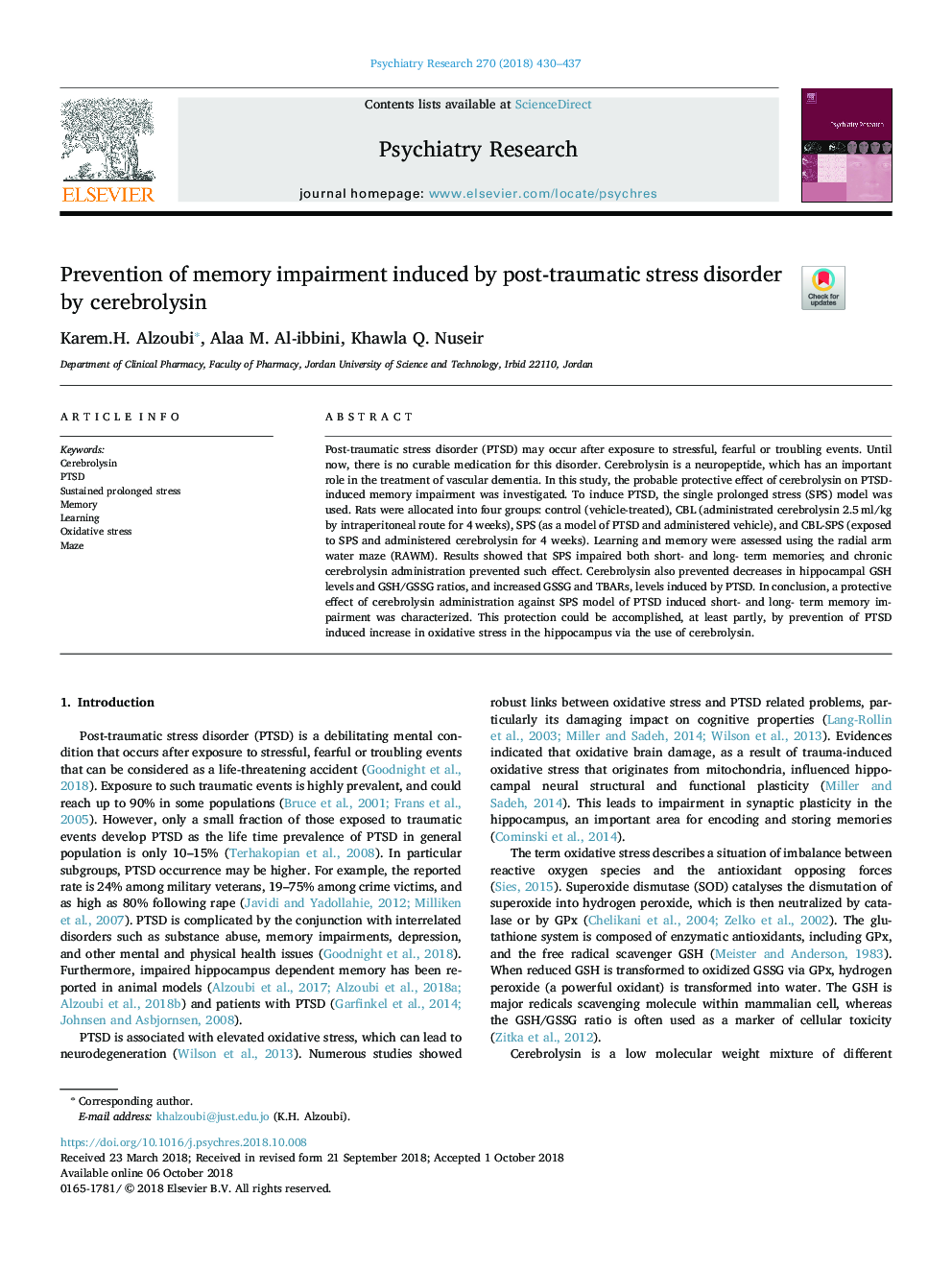| Article ID | Journal | Published Year | Pages | File Type |
|---|---|---|---|---|
| 11024108 | Psychiatry Research | 2018 | 8 Pages |
Abstract
Post-traumatic stress disorder (PTSD) may occur after exposure to stressful, fearful or troubling events. Until now, there is no curable medication for this disorder. Cerebrolysin is a neuropeptide, which has an important role in the treatment of vascular dementia. In this study, the probable protective effect of cerebrolysin on PTSD-induced memory impairment was investigated. To induce PTSD, the single prolonged stress (SPS) model was used. Rats were allocated into four groups: control (vehicle-treated), CBL (administrated cerebrolysin 2.5â¯ml/kg by intraperitoneal route for 4 weeks), SPS (as a model of PTSD and administered vehicle), and CBL-SPS (exposed to SPS and administered cerebrolysin for 4 weeks). Learning and memory were assessed using the radial arm water maze (RAWM). Results showed that SPS impaired both short- and long- term memories; and chronic cerebrolysin administration prevented such effect. Cerebrolysin also prevented decreases in hippocampal GSH levels and GSH/GSSG ratios, and increased GSSG and TBARs, levels induced by PTSD. In conclusion, a protective effect of cerebrolysin administration against SPS model of PTSD induced short- and long- term memory impairment was characterized. This protection could be accomplished, at least partly, by prevention of PTSD induced increase in oxidative stress in the hippocampus via the use of cerebrolysin.
Related Topics
Life Sciences
Neuroscience
Biological Psychiatry
Authors
Karem.H. Alzoubi, Alaa M. Al-ibbini, Khawla Q. Nuseir,
